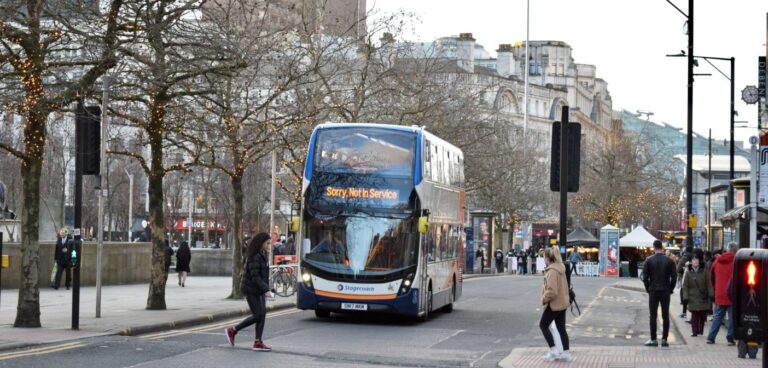The UK government’s National Bus Strategy is currently funding only two out of five local authorities’ Bus Service Improvement Plans (BSIP), according to a report by Campaign for Better Transport.
It claims that insufficient funding from the government has failed to help the bus sector recover from the pandemic, where 16% of services were cut in the first year alone.
Read more: UK bus journeys increase but lag behind pre-Covid levels
The report, Funding local bus services in England, claims that rural communities have been particularly affected as they have struggled to bid for competitive funding pots.
It also outlines a list of suggestions for how the government can improve current services. These include greater funding, investment in training, recruiting and upskilling staff, guidance on preparing a competitive funding bid for local authorities and reforming the funding pot system.
Silviya Barret, head of policy, research and projects at Campaign for Better Transport, said: “The government needs to change the way it funds buses: rather than making areas compete, often fruitlessly, it should set up a single funding pot for all local authorities to invest in more frequent buses, cheaper fares and faster journey times.”
Read more: More than a quarter of bus services in England have stopped in last decade, research reveals
Citing Department for Transport data, the report shows that in the 10 years between 2011/12 and 2020/21, bus service provision across England – measured in vehicle miles – declined by 27%.
Over the last decade, there were reported losses of over 5,000 bus routes.
BSIP funding figures were also included and showed the disparity between communities. For example, Blackburn with Darwen and Lancashire was awarded 75% of its bid, £34.2m out of £45.5m, whereas Liverpool City Region (and Halton) received only 2% of its ask, £12.3m out of £526.4m.
Overall, only 24% of the winning authorities’ original ask amounts was awarded.





